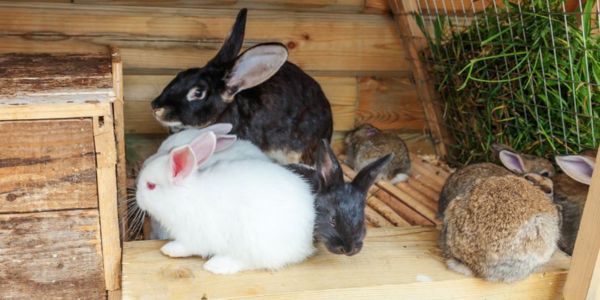
KEEPING YOUR PETS COMFORTABLE AS THE TEMPERATURE DROPS
As the temperature drops and winter draws near, our furry companions often need a little extra care. Just like us, pets can struggle with the cold, and while some are well-equipped for winter, others rely on us to help them stay warm, safe, and happy. Whether you share your home with cats, dogs, or small furries, here are some essential tips to help them thrive through the colder months.
CATS
Cats are masters of finding the warmest spot in the house, but outdoor and indoor cats alike can be vulnerable in cold weather.
- Provide warm shelter: Make sure your cat always has access to a cosy, dry indoor space. If they use a cat flap, check regularly that it isn’t frozen shut or blocked by snow or ice.
- Keep them in during extreme cold: During freezing conditions, it’s safer to keep cats indoors. If your cat is used to roaming, provide a litter tray and enrichment toys to keep them content inside.
- Create cosy resting spots: Place warm beds away from draughts and on raised surfaces to avoid cold floors. Heated pet mats or blankets (with safety features) can be especially comforting for elderly cats or kittens.
- Check your car: Cats sometimes crawl beneath car bonnets or onto tyres seeking warmth. Always tap the bonnet or honk gently before starting your engine.
- Stay playful: Cats can become less active in the winter. Interactive toys or puzzle feeders can help keep them mentally stimulated indoors.
DOGS
Dogs still need their daily walks and stimulation during winter, but a little extra care goes a long way to keeping them comfortable and safe.
- Dress for the weather: Short-coated breeds (like greyhounds or staffies), puppies, and older dogs may appreciate a warm coat or jumper when heading out.
- Take care on icy surfaces: Slippery pavements can lead to strains or falls, particularly in older dogs or those with arthritis. Consider shorter, more frequent walks if it’s very icy.
- Paw care matters: Salt, grit, and de-icing chemicals can irritate your dog’s paws. After walks, rinse and dry their feet thoroughly, and check between the toes for any ice or cuts.
- Hydration is still important: Dogs can get dehydrated in winter, too. Make sure they always have access to fresh, unfrozen water.
- Avoid frozen lakes and ponds: Ice can look solid but may give way under your dog’s weight. Always keep them on a lead near open water.
- Keep them active indoors: On days when the weather is too harsh, try indoor games, training sessions, or food puzzles to keep your dog mentally and physically engaged.
RABBITS & GUINEA PIGS (OUTDOOR PETS)
Small pets feel the cold quickly and need extra protection when temperatures drop.
- Bring them inside if possible: A shed, garage, or enclosed porch offers valuable shelter from frost and wind. Ensure any space is predator-proof and still gets daylight.
- Insulate outdoor hutches: If they must stay outside, use extra insulation such as thick blankets, tarps, or bubble wrap over the hutch – but make sure air can still circulate.
- Plenty of bedding: Provide a deep layer of straw so your pets can burrow and keep warm. Check bedding daily and replace damp material promptly.
- Pet-safe heat sources: Use microwavable pet heat discs or snuggle pads to provide gentle, safe warmth.
- Check water supplies: Water bottles and bowls can freeze quickly – use bottle covers and check them several times a day.
- Extra calories help: Small pets burn more energy keeping warm, so they may need slightly more food in winter.
GENERAL TIPS FOR ALL PETS
- Routine health checks: Cold weather can worsen conditions like arthritis, so winter is a good time for a veterinary check-up, especially for senior pets.
- Watch for behaviour changes: Shivering, reluctance to go outside, or sleeping more than usual can be signs your pet is too cold.
- Keep a consistent routine: Pets thrive on routine, and shorter days can make them feel unsettled. Try to maintain regular feeding, play, and exercise times.
- Beware of antifreeze: Even tiny amounts of antifreeze are highly toxic to pets. Store it safely and clean up any spills immediately. If you suspect your pet has come into contact with it, contact us immediately. Alternatively call the Veterinary Poisons Information Service on 01202 509 000.
A FINAL WORD
Winter can be a magical time full of crisp walks, cosy evenings, and maybe even a bit of magical snow. By making a few small adjustments, you can ensure your pets stay warm, safe, and full of joy all season long. After all, their comfort and wellbeing are part of what makes home feel so special during the colder months.
